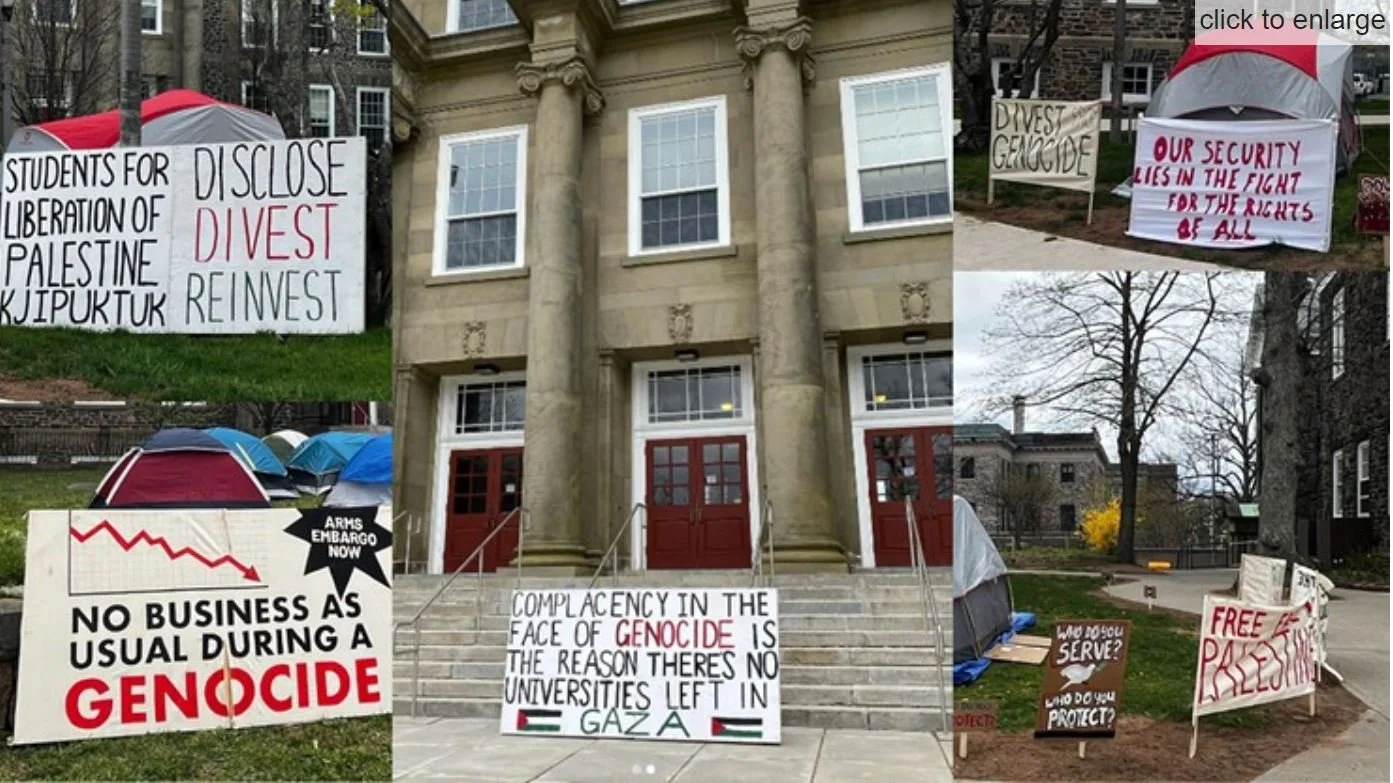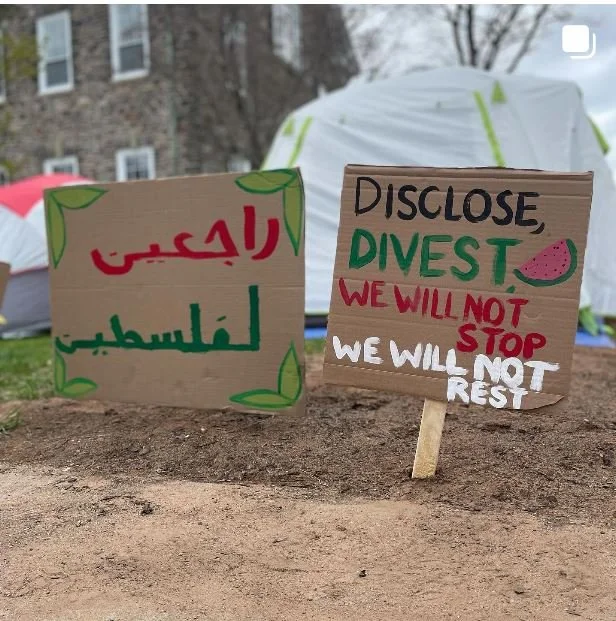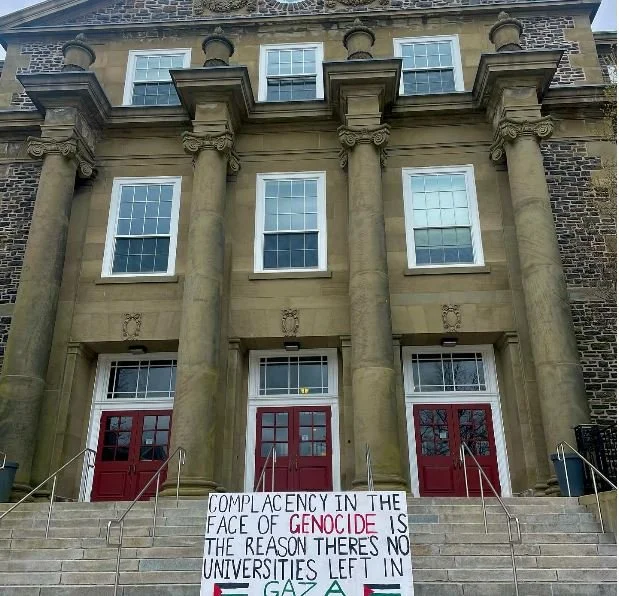Statement by Jewish Faculty Network - Nova Scotia
University encampments and the myth of Jewish student un-safety
A statement from the Jewish Faculty Network - Nova Scotia
Halifax students have begun an encampment at Dalhousie University in support of beleaguered Gazans, as has happened at eight universities in Canada and over ninety around the world. As with the others, we expect it to be entirely peaceful and informational.
We are hoping that this encampment is not attacked by the usual complaints from some Jewish institutional organizations, like the Atlantic Jewish Council and B’nai Brith, that Jewish students are feeling intimidated and unsafe, followed by demands that the authorities should therefore get the police to clear the protesters out.
We are a group of Jewish professors at Nova Scotia universities, part of the Jewish Faculty Network, a pan-Canadian organization, and we say that disagreement and debate over contentious political issues is a mainstay of campus life. We also say that allegations of un-safety of Jewish students are unfounded and part of a broad campaign to shut down criticism of Israel.
Ironically, across the encampments, all of the violence done to Jews in recent weeks has happened, not to pro-Israel Jewish students and faculty, but rather to those supporting and joining those encampments. From the violent attacks by pro-Israel assailants on Jewish and other campers at UCLA, to the police assault and arrest, and the banning from campus, of 65-year-old Dartmouth College Jewish professor Annelise Orleck (former head of Jewish Studies there), to the taunting of the McGill, Toronto and UBC campers by counter-protesters, a large proportion of the campers are themselves Jewish and have received abuse.
No doubt the encampments make some Jewish students “feel” uncomfortable. It is not pleasant to hear your cherished beliefs criticized. It is not easy to watch the killing of 35,000 people, 14,000 of them children and know Israel is responsible and doing it in your name. But there is a huge gulf between discomfort and un-safety.
Truth be known, the vast majority of reports of Jewish student un-safety cite, not actual incidents of harm or abuse, but rather merely feelings. Moreover, these feelings of unsafety are carefully and enthusiastically curated by the Jewish institutional organizations and by mainstream media, to the point of palpable moral panic. And this perception, rather than the reality, becomes the stuff of headlines.
Indeed, concerning the McGill University, two applications for injunctions to remove the encampment have been rejected by the courts, in both cases because the applicants had not proven an emergency existed. Quebec Superior Court Justice Chantal Masse rejected an injunction application by two Jewish students, ruling that they had failed to prove that the protests jeopardized their physical safety or disallowed their attending classes. Said the judge: “the balance of inconveniences leans to the side of the protesters, whose freedom of expression and of peaceful assembly would be seriously affected," The evidence of harm to the students,” she said, is "rather limited, arising more from subjective worries and discomfort rather than precise and serious worries for their safety."
Precisely. As Australian journalist Caitlin Johnstone says, “ Israel’s defenders talk so much about feelings because they can’t talk about facts.”
We categorically oppose police intervention to remove encampments and urge Dalhousie, and all of Halifax’s universities, to treat them as the educational events they are and can be.

Encampment at Dalhousie University

